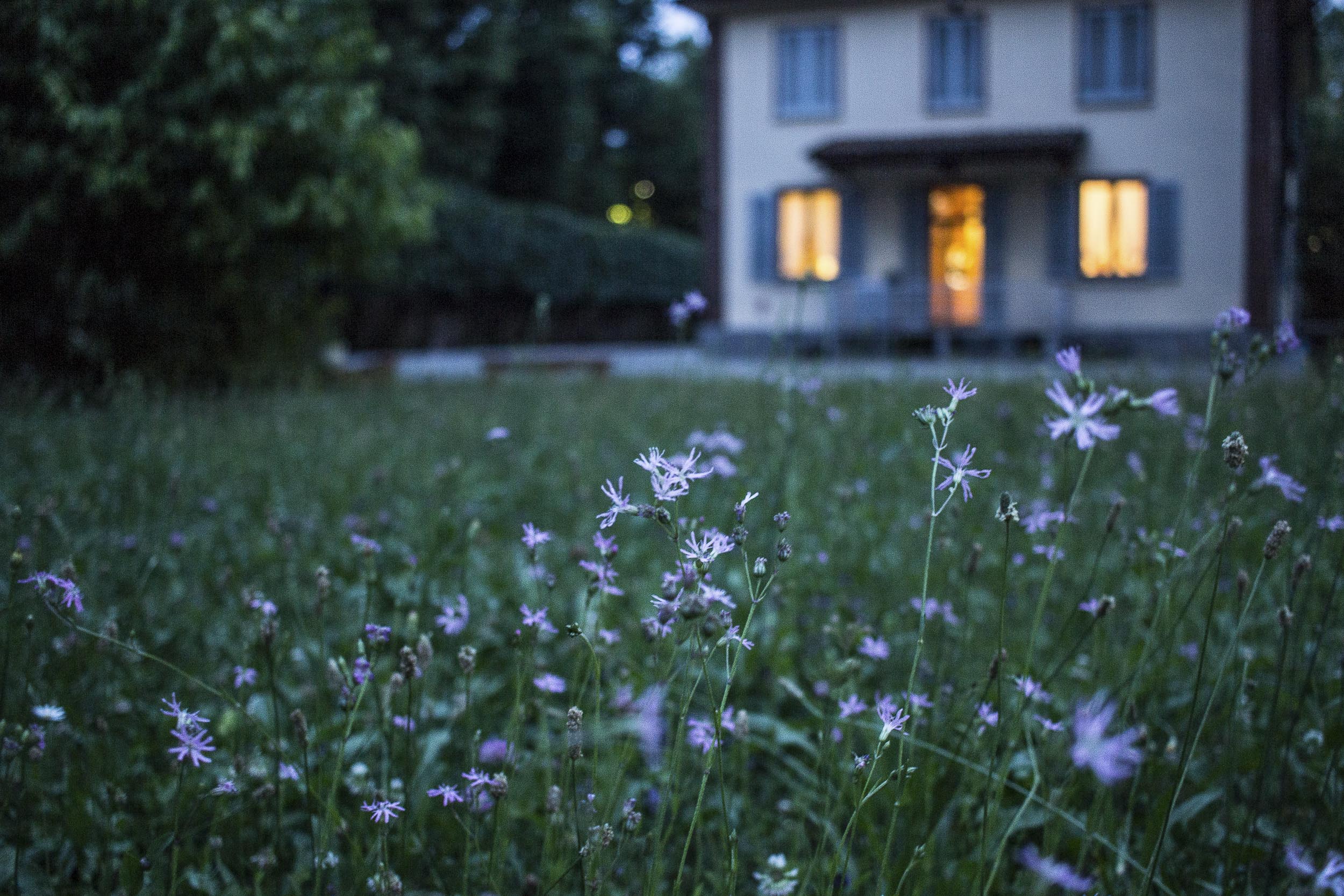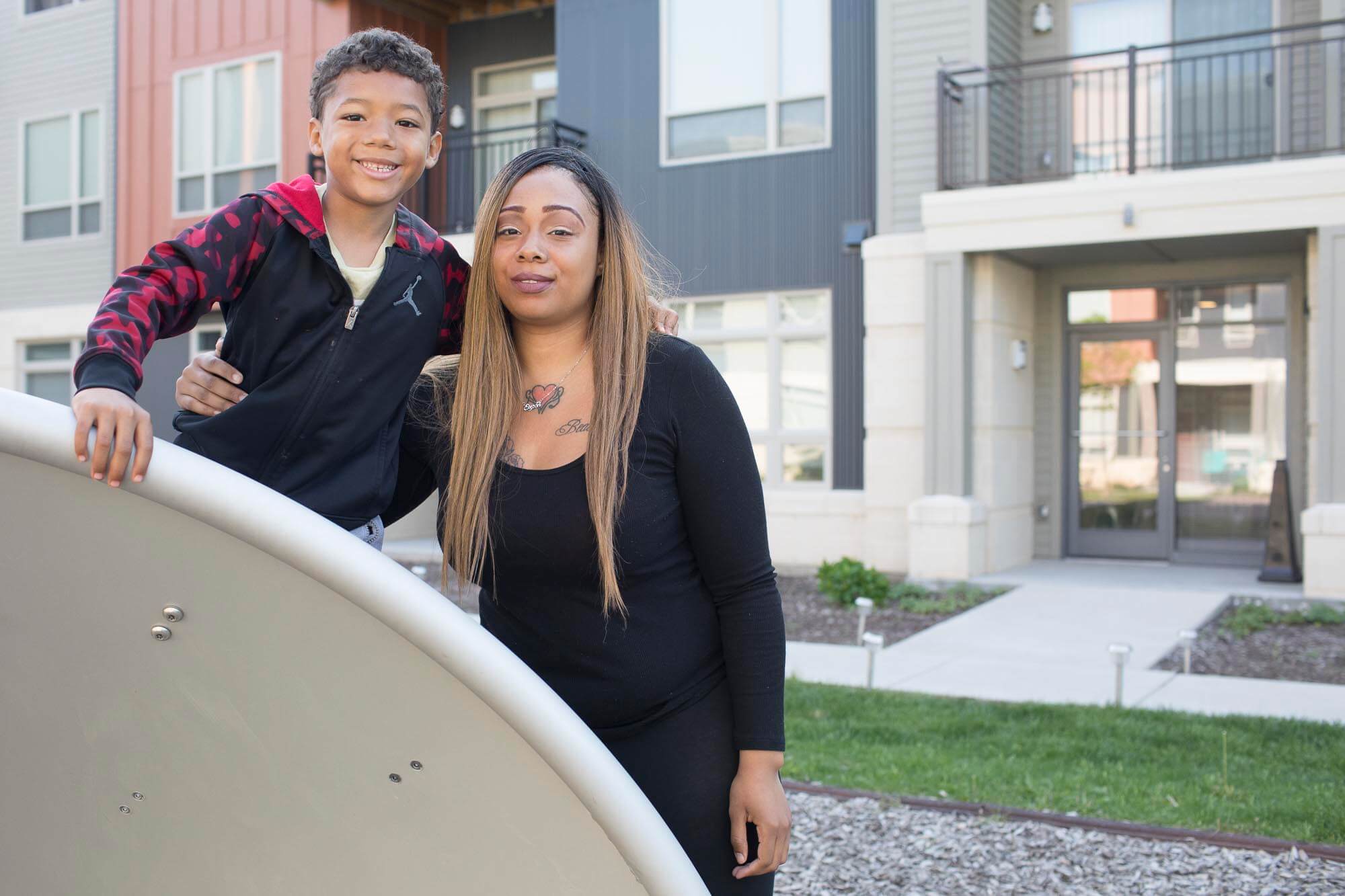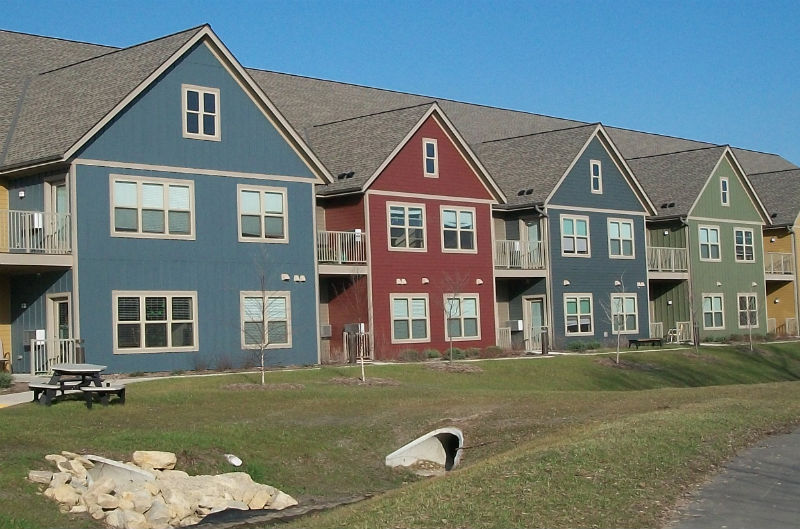
A safe foundation for housing security
Rental housing for qualified individuals with disabilities and their families
Movin' Out, Inc. offers affordable, accessible rental housing to people whose disabilities may qualify them for supportive services administered by long-term support programs such as Family Care and IRIS. We provide independent, community-integrated rental homes that do not require licensing as a facility but can accommodate the provision of supportive services.
We do not provide supportive services but will coordinate with you, your Family Care or IRIS representative, and your supported living providers to adapt their assistance to account for what you want and need from your new home, even if you have substantial or complicated support needs.
Movin’ Out owns and manages community-integrated rental homes
For people who are vulnerable because of their disabilities, safe, affordable housing can make the difference for a stable life. Movin’ Out owns and oversees the management of hundreds of units of accessible and affordable housing that are integrated into ordinary neighborhoods in communities throughout Wisconsin. Many of the apartments, condos, duplexes, and single-family homes we rent are modified to provide improvements specifically tailored to residents with disabilities.
Our investment in these homes is based on the idea that residents will stay for a long time, and will see the home as their own. Modifications are expertly designed and carefully crafted, and can be designed to increase mobility and safety, and can also account for a tenant’s behavioral challenges or medical conditions. Planning for modifications often includes the residents’ supported living providers, Family Care or IRIS representatives, families, and architects and builders with expertise in such modifications. Some or all of the cost of modifications may be covered by the resident’s Medicaid or other third party sources.
Movin’ Out invests in tenant success
Some tenants with disabilities may have little experience living outside of the family home, a group home, or institution. Others may have previous housing experience marked by disruptions, like evictions or non-renewal of leases. For some, the nature and expression of their disabilities may have created hurdles in conforming to general expectations of tenants. For such people, Movin’ Out is building its capacity to provide support that can increase a resident’s chance of long-term success.
Our Tenant Success team members foster tenants’ collaboration with property managers and Family Care or IRIS representatives. They’ll help the tenant with information, advice, and problem-solving to assure comfort and safety, adequate relationships with neighbors, accessibility, and other accommodations for their disabilities. The team will periodically review and confirm the tenant’s knowledge of key dates, rules, and events regarding lease renewal and other tenant requirements.
“Having just a little help goes such a long way.”
Candace Cleggett, renter

Eligibility
Income status
Movin' Out offers rental homes to households that qualify under Section 42 or HUD income limits. Our mixed-income apartments typically include units designated for various low- to moderate-income levels. For example, some units are designated for households earning no more than 80% of the county median income, some for those earning no more than 60%, others for those earning no more than 50%, and others for those earning no more than 30%.
The property manager at each location can help you figure out which apartments you might qualify for, based on your household’s total income. Proof of your income is required when you fill out an application.
Disability status
Some apartments in the buildings we own and manage, typically around 20-25% of the units, are designated for people who have permanent disabilities of any type. For those apartments, an applicant may need to provide proof of disability as well as documentation of income.
Veterans
Military veterans may also qualify based on income. If you are a military veteran and your total household income falls below a certain amount, you may qualify to apply for one of the units designated for people with disabilities, whether you have a disability or not.
Fair housing
Movin' Out and its property management partners adhere to the requirements of the Federal Fair Housing Act, which prohibits discrimination in housing on the basis of race or color, religion, national origin, family status, age, disability, or sex.
Previous history
Movin' Out and its property management partners consider income, credit history, criminal history, and prior rental experience when reviewing rental applications. If your credit is poor due to issues with medical bills or other issues related to your disability, we will take that into account when reviewing your application.
Rental Housing Highlight
Elven Sted

An affirmatively inclusive community
In 2011, Movin' Out completed the development of 33 units of new multi- family housing situated on the Yahara River at the corner of 8th and Dunkirk in Stoughton. The project is financed with WHEDA low-income housing tax credits syndicated by National Equity Fund. Additional financing is provided by Dane County HOME funds, Disability Opportunity Fund, and BMO Harris Bank.
Elven Sted is an affirmatively inclusive community; the units are attractive examples of the best in workforce and family rental housing. Several units are adapted to meet accessibility needs of family members with disabilities. Common areas are barrier free and anyone can visit the Elven Sted apartments, including people who use mobility devices. Elven Sted offers the opportunity to live in new housing built with quality and care. The grounds feature community vegetable gardens in raised beds and a rain garden with plant species that mitigate storm water runoff and add beauty to the landscape. Affordable rents, multiple amenities, and a perfect riverside location distinguish these new homes and attract tenants who want to settle into a friendly, inclusive, stable community of neighbors.
